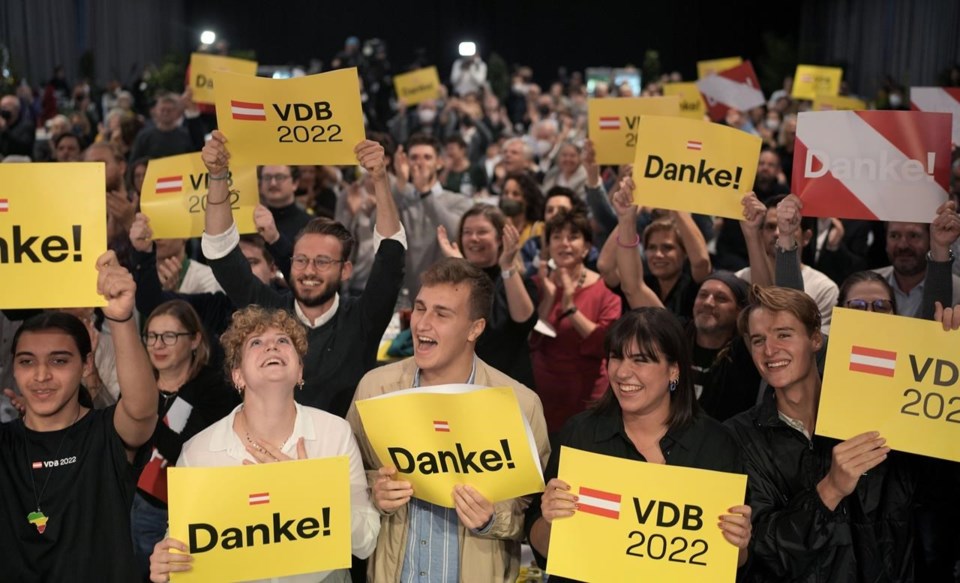VIENNA (AP) — Austria’s liberal president was on course to win a second six-year term outright Sunday, avoiding a runoff vote after a campaign in which he portrayed himself as the stable option in uncertain times, projections showed.
Projections for ORF public television and the Austria Press Agency after the last polling stations closed in Sunday’s election showed President Alexander Van der Bellen winning just over 55% of the vote. More than half the votes were already counted, and ORF gave a margin of error of plus or minus around 2 percentage points.
Van der Bellen's closest rival, far-right Freedom Party candidate Walter Rosenkranz, was expected to get around 18% support.
Campaign posters for the 78-year-old Van der Bellen, who hails from the environmentalist Green party but ran as an independent, featured the slogan “The Safe Choice in Stormy Times.”
Austria has faced repeated political turmoil in recent years. It went through five chancellors during Van der Bellen’s first term, with government crises giving the often largely ceremonial head of state unusually high visibility.
There were seven contenders in Sunday's election, but Van der Bellen had the implicit or explicit backing of Austria’s mainstream parties. The Freedom Party was the only party in parliament to field a candidate against him.
Nearly 6.4 million people in the Alpine country were eligible to vote.
In 2016, Van der Bellen beat a more prominent Freedom Party candidate, Norbert Hofer, by 53.8% to 46.2% in a runoff that was rerun on the orders of Austria's Constitutional Court.
Hofer's party had claimed widespread voting irregularities in the initial runoff months earlier that Van der Bellen won by a whisker. The vote was closely watched in a year that produced the Brexit vote in the U.K. and Donald Trump’s election in the United States.
There was no sign of any such drama this time.
The Freedom Party, which was the junior partner in a coalition government that collapsed in a scandal surrounding its then-leader in 2019, had capitalized on inflation and rising energy prices to make modest poll gains in recent months. But Rosenkranz, a lawyer and the former leader of its parliamentary group, didn't pose the strong challenge that Hofer did.
Rosenkranz told ORF that he had achieved an “absolutely acceptable result.”
The remaining five candidates — all of whom were seen polling under 10% — included other contenders on the hard right.
Preliminary results were expected Sunday evening. Postal ballots will be counted on Monday.
___
Geir Moulson reported from Berlin.
Philipp Jenne And Geir Moulson, The Associated Press



